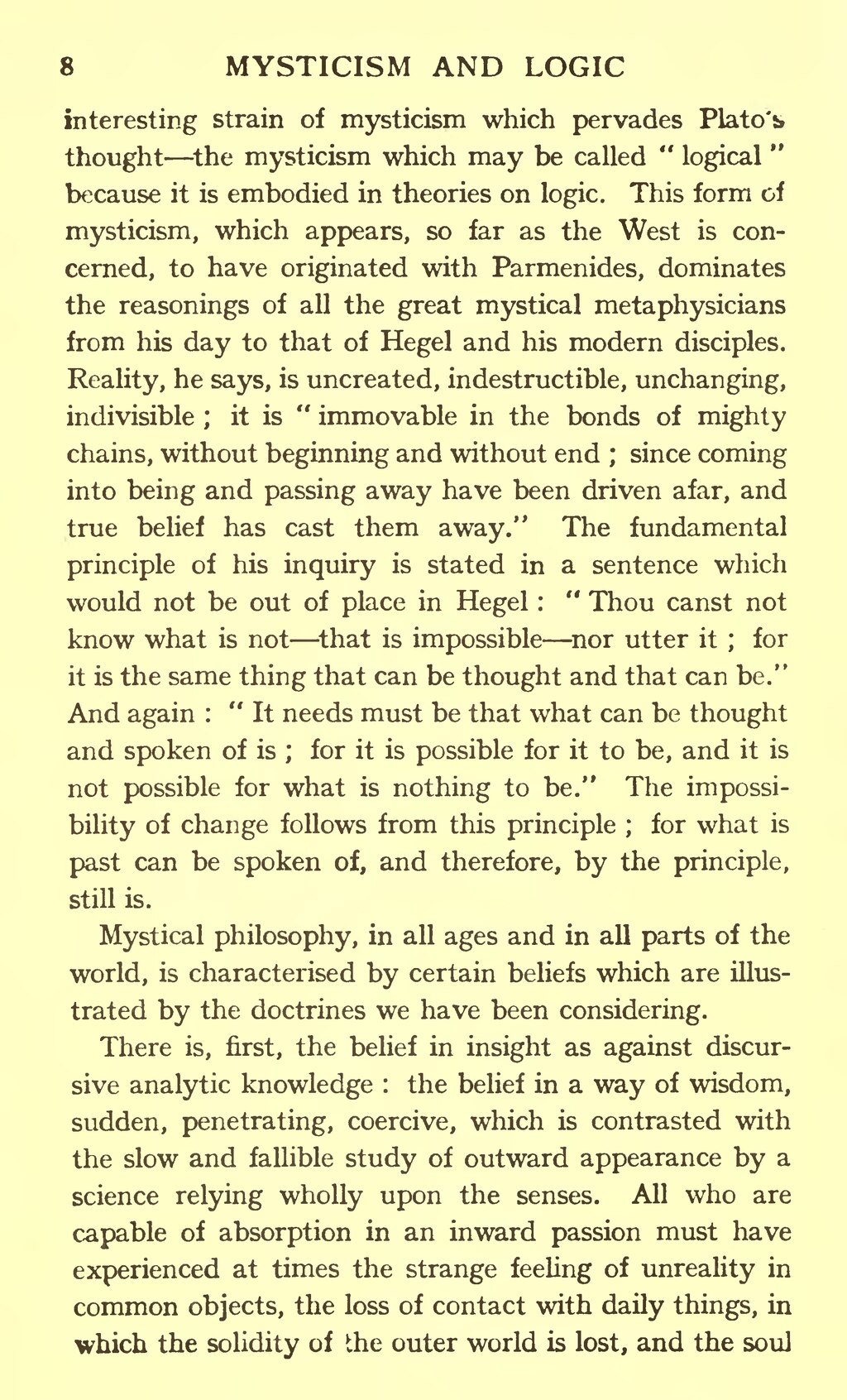interesting strain of mysticism which pervades Plato's thought—the mysticism which may be called "logical" because it is embodied in theories on logic. This form of mysticism, which appears, so far as the West is concerned, to have originated with Parmenides, dominates the reasonings of all the great mystical metaphysicians from his day to that of Hegel and his modern disciples. Reality, he says, is uncreated, indestructible, unchanging, indivisible; it is "immovable in the bonds of mighty chains, without beginning and without end; since coming into being and passing away have been driven afar, and true belief has cast them away." The fundamental principle of his inquiry is stated in a sentence which would not be out of place in Hegel: "Thou canst not know what is not—that is impossible—nor utter it; for it is the same thing that can be thought and that can be." And again: "It needs must be that what can be thought and spoken of is; for it is possible for it to be, and it is not possible for what is nothing to be." The impossibility of change follows from this principle; for what is past can be spoken of, and therefore, by the principle, still is.
Mystical philosophy, in all ages and in all parts of the world, is characterised by certain beliefs which are illustrated by the doctrines we have been considering.
There is, first, the belief in insight as against discursive analytic knowledge: the belief in a way of wisdom, sudden, penetrating, coercive, which is contrasted with the slow and fallible study of outward appearance by a science relying wholly upon the senses. All who are capable of absorption in an inward passion must have experienced at times the strange feeling of unreality in common objects, the loss of contact with daily things, in which the solidity of the outer world is lost, and the soul
